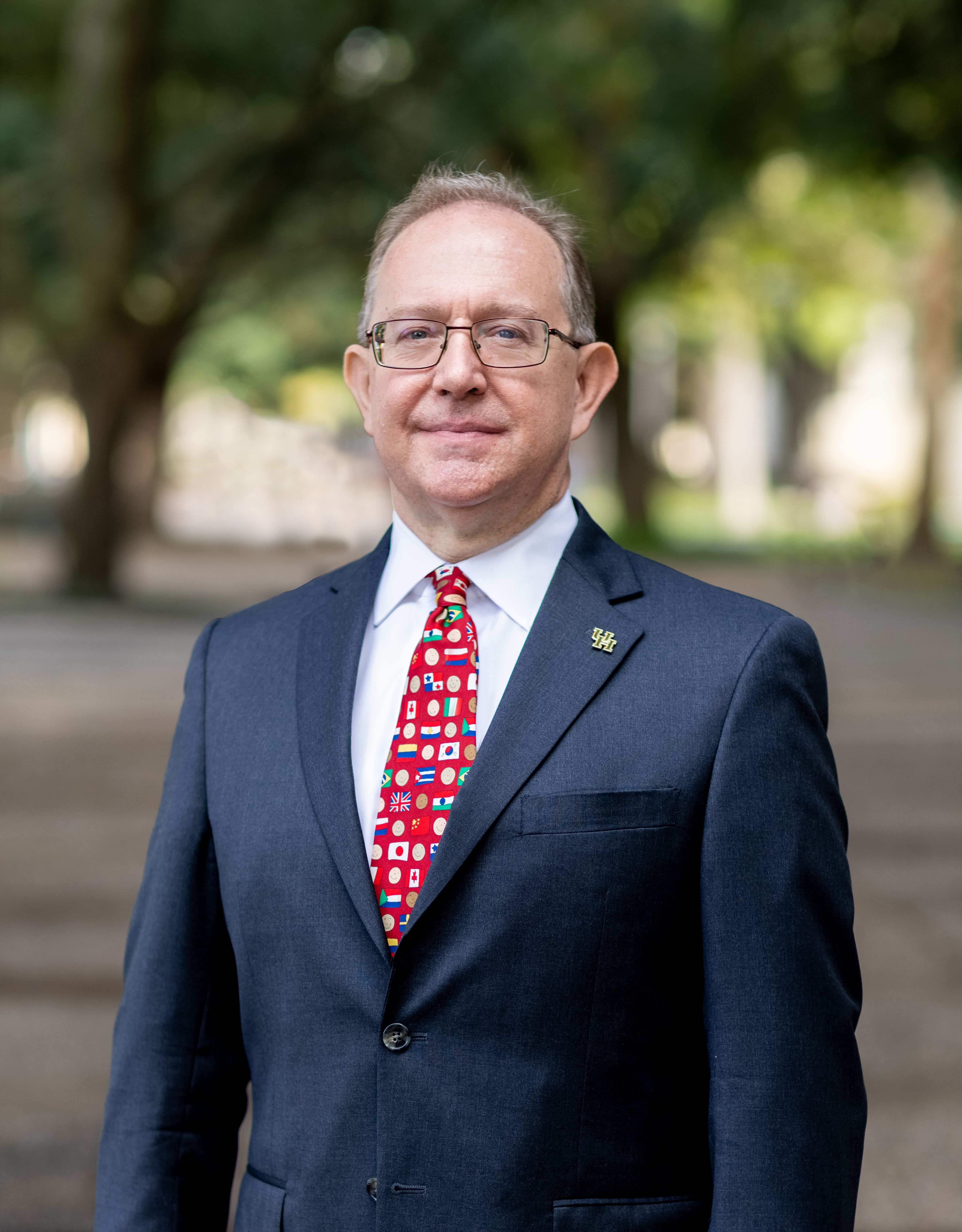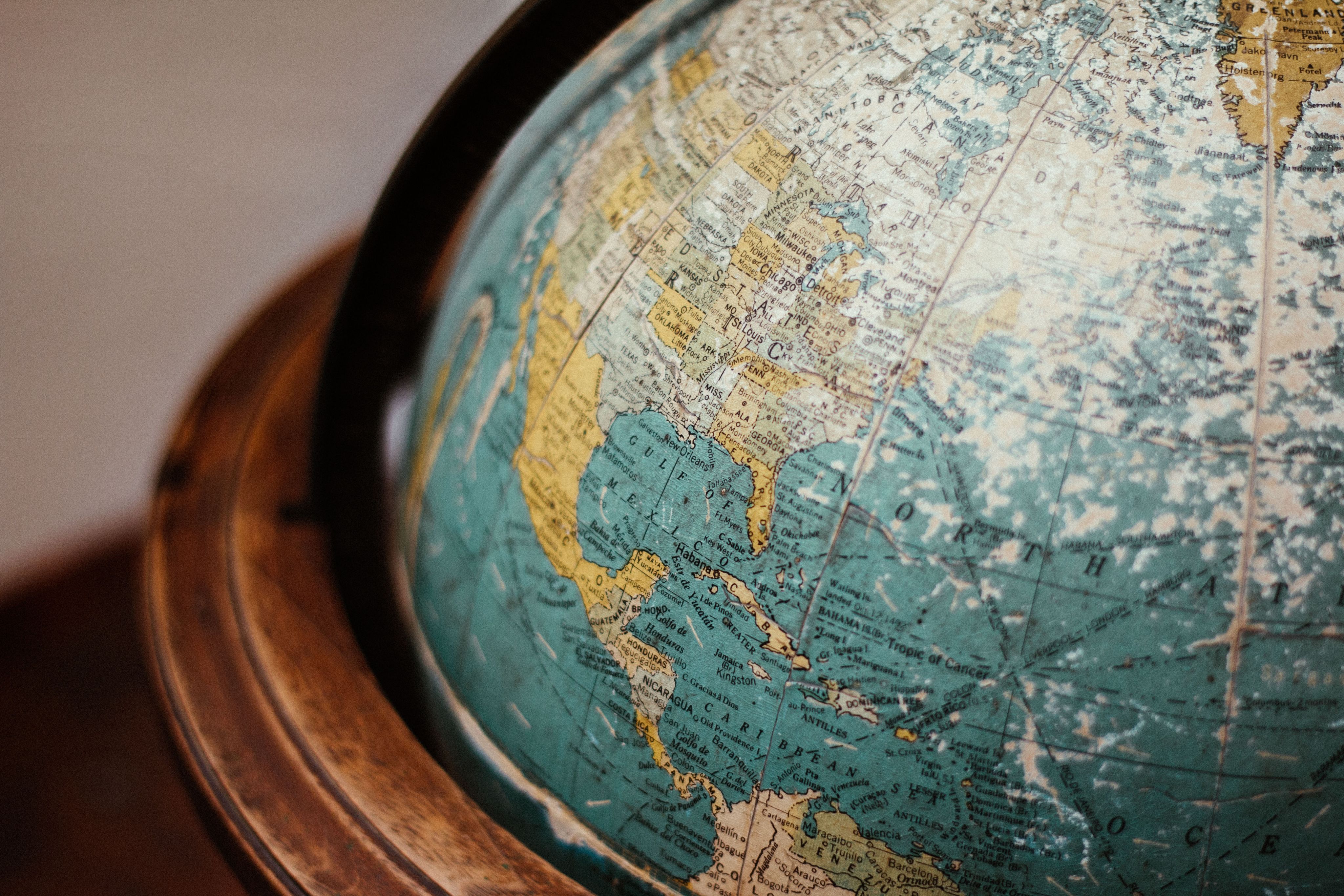Global Connections
Retired Ambassador Brings International Expertise to UH

Michael Pelletier has been named executive director of the University of Houston’s newly launched Institute for Global Engagement, an Aspire Initiative. The Institute will expand the University’s international profile and equip students with a more cosmopolitan mindset. A retired career diplomat, Pelletier has served at eight U.S. missions overseas and in senior leadership positions at the State Department, including as Ambassador to Madagascar and Comoros and as dean of the School of Professional and Area Studies at the Foreign Service Institute. He holds degrees from Georgetown and Columbia.

Q: It’s not easy to summarize an enterprise as ambitious as the Institute for Global Engagement, but can you try?
A: We plan to draw on the considerable resources already available at UH – and add to them as needed – to provide our students with a broad range of educational opportunities and experiences with an international perspective. In terms of specific curriculum and programs, right now, I’m going to wait to see what the real needs of UH and the community are. But the end result will be students with a better grasp of global issues and their own roles in this increasingly interconnected world.
Q: And the value in that?
A: Throughout my career in Foreign Service, it’s become clear that there is a growing international aspect to everything we do. When I was working in Dubai, I was invited to an event organized for a trade delegation from Maine since I’m from a small town in Maine. I was surprised – what were they doing in Dubai?! These were exporters of lobsters, blueberries and crafts. They told me, “The U.S. market is important, but if you want to succeed, you also need to be international.” So, they were selling that to Dubai as luxury items. That’s literally happening every day all around the world.
Q: Certainly, in Houston …
A: Yes, it’s obvious in Houston – the business sector, the commercial community, the oil and gas industry, the health care industry. With a city as big and diverse as Houston, it’s almost taken for granted. But it’s useful to look at all that with fresh eyes and then determine how our students can be informed and become involved. That’s one of the institute’s objectives.
Q: Is there a model you’ll be following for the institute?
A: Not exactly. However, I am reminded of an assignment I was given by the then-Under Secretary of State for Public Diplomacy, Karen Hughes, a Texan you may remember. At the time, there was an intense discussion going on in the Arab world about international affairs, and the U.S. government hadn’t really been part of those conversations – and we needed to be.
As a fluent Arabic speaker, I was tasked with setting up an institution in Dubai, our regional media hub, and conducting numerous interviews with the Arab media world as well as training others to do likewise. It allowed us to become a part of the conversation and share our point of view. Our institute has similarities with that, primarily in making sure a certain perspective is being communicated. And I’m proud to report the Dubai regional Arabic media hub is still an essential part of the State Department – just as I hope our institute will become an integral part of UH.
Q: Following up on that, how many languages do you speak?
A: I like to say I can get myself in trouble in a lot of languages – Spanish, German, Tamil – but I can only get myself out of trouble in English, French and Arabic.
Q: What does one call you – Ambassador?
A: How about just Michael? I’ve retired from the Foreign Service, so technically the title would be Ambassador (Retd.).
Q: And the last name – French, like “Pella-tee-yay”?
A: As I said, I’m from a small town in Maine, and I’m pretty sure that pronunciation would get you a lot of funny looks. Just Pellet-tier.
Q: It’s understandable not wanting to commit to specific programs at this early stage, but can you share some general thoughts abut the institute’s agenda?
A: Well, we mentioned the need to focus on the obvious elements – oil and gas, health care, international business, the hospitality industry, which are all so vital to Houston.
But another aspect that may surprise you is arts and culture. I believe people are more at ease with the idea of international engagement if it’s connecting at a human level. Just because something is “foreign” doesn’t mean it has to be strange or intimidating. Our students will realize that artists and performers may come from some country across the world, but their concerns about life aren’t really that different than their own – and that’s an important step in thinking from a global perspective. So, we will certainly encourage that.
